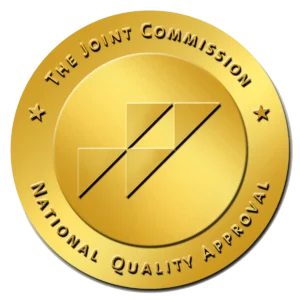It is quite common for older adults to experience multiple health problems requiring a battery of medications. Mobility and agility may be compromised and many seniors report reduced social and emotional support—even isolation. That is why many people assume that getting older also entails a certain amount of depression. Since sadness is expected with advanced age, actual depression is often overlooked and untreated.
Clinical depression is not just a passing mood, however. It is a condition in which people may experience persistent sadness, withdrawal from previously enjoyed activities, difficulty sleeping, physical discomforts, and feeling “slowed down”. The Centers for Disease and Prevention estimates that 20 percent of people age 55 and older experience some type of mental health problem, with the most common being anxiety, severe cognitive impairment, and mood disorders like depression or bipolar disorder.
Seeking treatment should not depend on one’s age. Depression is indeed the most prevalent mental health problem among older Americans but it is just as important for an older person with symptoms of depression to seek treatment as it is for someone younger. It can be treated successfully.
Feedback Loop
If untreated, on the other hand, the impact of depression on health in older adults can be severe. Research shows that depression is associated with worse health in people with conditions like heart disease, diabetes, and stroke. Depression can also complicate the treatment of these conditions, or keep people from seeking treatment at all. Recognizing the symptoms and seeing a doctor is the first step to getting therapy, which can make a difference in the patient’s quality of life.
The National Institute of Mental Health posted these warning signs to look out for:
- Noticeable changes in mood, energy level, or appetite
- Feeling flat or having trouble feeling positive emotions
- Difficulty sleeping or sleeping too much
- Difficulty concentrating, feeling restless, or on edge
- Increased worry or feeling stressed
- Anger, irritability or aggressiveness
- Ongoing headaches, digestive issues, or pain
- A need for alcohol or drugs
- Sadness or hopelessness
- Suicidal thoughts
- Feeling flat or having trouble feeling positive emotions
- Engaging in high-risk activities
- Obsessive thinking or compulsive behavior
- Thoughts or behaviors that interfere with work, family, or social life
- Unusual thinking or behaviors that concern other people
Untreated major depression is dangerous. It can lead to substance misuse and suicide. If you or a loved one have experienced some of the symptoms listed above, do not hesitate to seek help.
Comprehensive Care
The Pavilion at Williamsburg Place offers a geriatric program specifically designed for adults aged 55 and over. Medical advances have allowed people to live longer and our understanding of elderhood has changed in recent decades. Common admission diagnoses at the Pavilion include dementia, depression, anxiety, mood and behavior changes, and substance misuse. Medical specialists may be consulted to manage underlying physical illnesses that may be contributing to behavioral, emotional, and cognitive instability.
The Pavilion is ideally suited to provide integrated, comprehensive care for older adults. A comprehensive discharge plan is designed to ensure that each individual has the services and support to continue to live independently, return to a supportive living environment or facilitate placement in a setting that will maintain their safety and optimal level of functioning.






